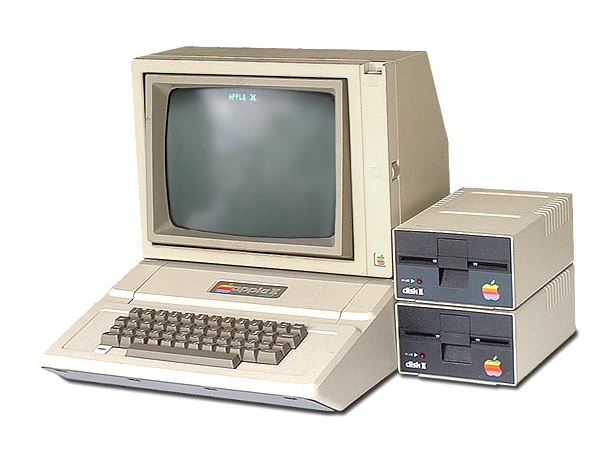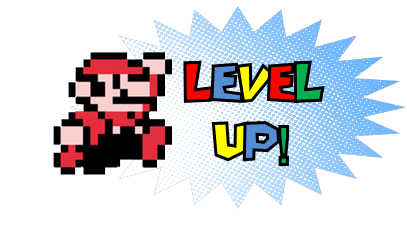Read – A Summary of the History of Educational Gaming
As early as the first microcomputers in the late 1970s, gaming and education have gone hand-in-hand. Early educational gaming pioneers like MECC, Davidson, and the Learning Company created innovative titles that inspired the Atari generation and beyond. Computer labs began to spring up in school across North America and the world. Students  gleefully munched numbers, typed with Mavis, and guided wagons across the American frontier. Soon, the floppy disk gave way to CD-ROM, as technology continued to advance. The 1990s became the age of the PC, as families around the world invited in a new member of the family into their homes. By the 2000s we were wired and well connected, as people all over the world interacted over the world wide web. A new era of gaming would be ushered in with the proliferation of the internet, where people could play, share, and learn together from thousands of miles away. Touch screens, apps and other modern innovations have propelled the gaming industry forward even further, leaving educators and game developers positively giddy over the possibilities. For an in-depth look at the growth of the educational gaming industry, click on the link to the timeline below.
gleefully munched numbers, typed with Mavis, and guided wagons across the American frontier. Soon, the floppy disk gave way to CD-ROM, as technology continued to advance. The 1990s became the age of the PC, as families around the world invited in a new member of the family into their homes. By the 2000s we were wired and well connected, as people all over the world interacted over the world wide web. A new era of gaming would be ushered in with the proliferation of the internet, where people could play, share, and learn together from thousands of miles away. Touch screens, apps and other modern innovations have propelled the gaming industry forward even further, leaving educators and game developers positively giddy over the possibilities. For an in-depth look at the growth of the educational gaming industry, click on the link to the timeline below.
View – Explore the Timeline
Take a stroll through “The Educational Gaming Industry Timeline”. Click and read about the key games, developers and innovations that shaped the industry’s history. Each key date is complete with a short description, as well as videos, games, and links to further information. Explore and enjoy!
Participate – Add to the Timeline
Did we miss something? There are so many important moments in the history of educational gaming, it is almost certain we did. If you have a favorite game, or key invention that you think belongs on the list let us know in the comments section below and it will be added to the timeline.
Comment – Your Personal History
In the comments section, elaborate on your own personal history with educational gaming, from your experiences growing up to occasions that you have used game-based education as a teacher or parent.


I kid you not, the first video games I ever witnessed hitting the market was Pong. Yes, I am that old! Although it wasn’t meant to be educational, you could learn something from it. In fact, it helped me improve my pool game. After hours of watching that white pixel bouncing of the virtual banks, I got better at judging the trajectory of the balls on the pool table. As mind blowing as Pong was at the time, the novelty wore out pretty fast; real ping pong was more fun.
In the mid-nineties, I got “Reader Rabbit” and “Connections” for my older kids. The entertainment value was low for both games and the play really only consisted of clicking on the right element. The process was pretty much like the Skinner learning machine where you could get instant feedback on your choice and receive rewards in the form of digital medals or fireworks.
A few years ago, we got Little Big Planet for our youngest kids. I was surprised at the entertainment value of this unstructured game, as we regularly heard burst of laughter while the kids were playing. This games provides a platform that allows kids to create their own games or stories. This game is really different than a traditional video game where you have to progress through a series of challenges and levels in a sequential pattern. The entertainment value is in seeing and and sharing the result of the “player’s” creations. I would call Little Big Planet more of developmental game than a learning game, if we consider learning as we normally perceive it in terms of demonstrable skills or knowledge. While I believe it does promote learning, I don’t really see it making on the educational market because the learning it promotes is not immediately measurable.
As a teacher, I teach mostly practical skills and,while I use a lot of digital applications, I don’t recall ever using video games to promote learning. As the person responsible for the learning commons at our school, I promote and encourage the use of Minecraft during breaks and lunch on our computer system. Last year we had a fortunate incident when some students created havoc by hacking into other student’s world and destroying their creations. After many complaints, I told the students (mostly grade 8 and 9) that they would have to find a solution on their own. I facilitated the process by calling and moderating a few meetings and, eventually, they came up with their own system to bring peace back into their virtual world. Minecraft is another unstructured game that promotes creativity and collaboration. The reason we have it at our school is because it is free . I doubt we would pay to get it as no one uses it for curriculum related instruction.
Thanks for the thoughful post. I had honestly never heard of Little Big Planet before doing this project and I must say, I am impressed. It looks like a really fun game, so if it has any learning objectives built in that’s icing on the cake. A “developmental” game is a really nice way of putting it.
Brendan
So many memories! I was also an Mac Classic II elementary school student. I remember not being able to use paint very effectively (not much has changed really), Oregon Trail (the black/white version – never ford the river, try to float across first) and Where in the World is Carmen San Diego. Now I am beginning to understand why I enjoy history and geography so much!
I liked that Brain Age was included on the timeline. I’m wondering now if tools like Lumosity are the next step, as web-based brain training tools. I am intrigued by the idea of cognitive training and have been a Lumosity member for some time. I am pretty good and logging in several times a week to try and get my “BPI” higher than it was the time before. I have done so and I do seem to notice a difference, particularly with my mental math skills, which have never been great.
Thanks for the comment. I’m glad you experienced a little nostalgia from the timeline. It’s really interesting to hear a first hand testimonial from a user of Luminosity.
Hey Team 3,
I think I put too many links into my first comment and it’s getting held up in moderation. Could someone release it? Sorry for the trouble, and thanks for an interesting week!
John
Hi John,
Took care of it. Thanks for the post!
Brendan
The history of educational gaming goes back many years as this team mentions. However, I suspect that many regions in Canada, for example, did not participate in the evolution of educational gaming because of the digital divide. For example, there are many northern communities that continue to struggle with ‘last kilometer’ challenges when it comes to Internet connectivity because of a lack of infrastructure. So, in these remote or isolated places, game-based learning remains a pipe dream.